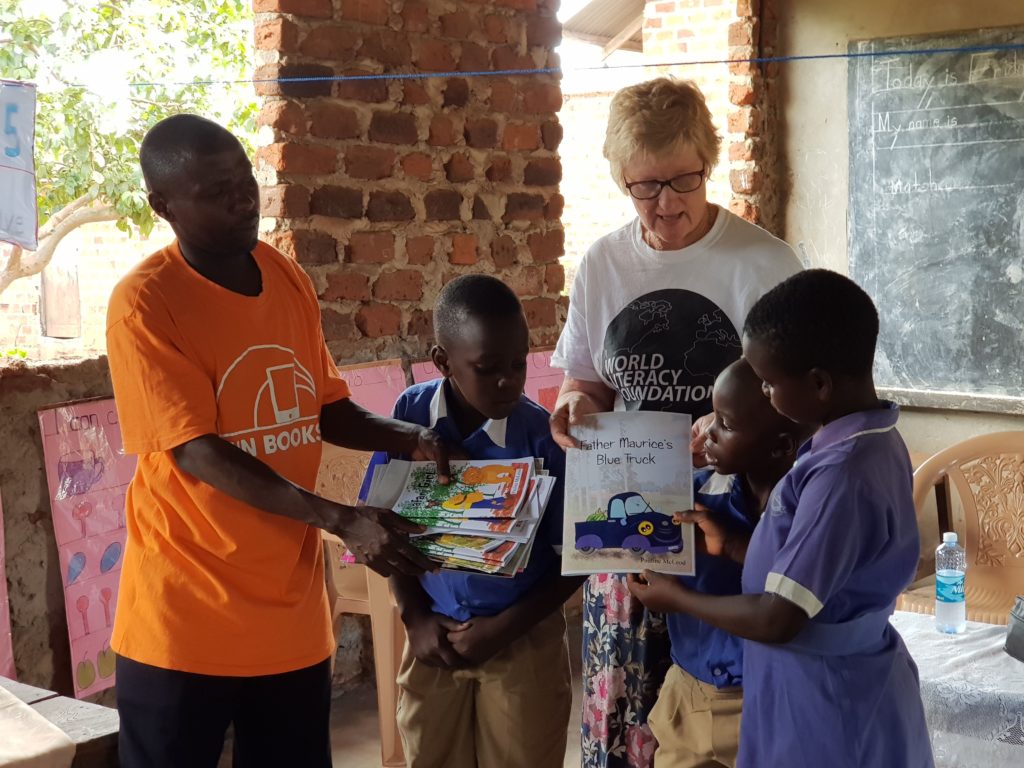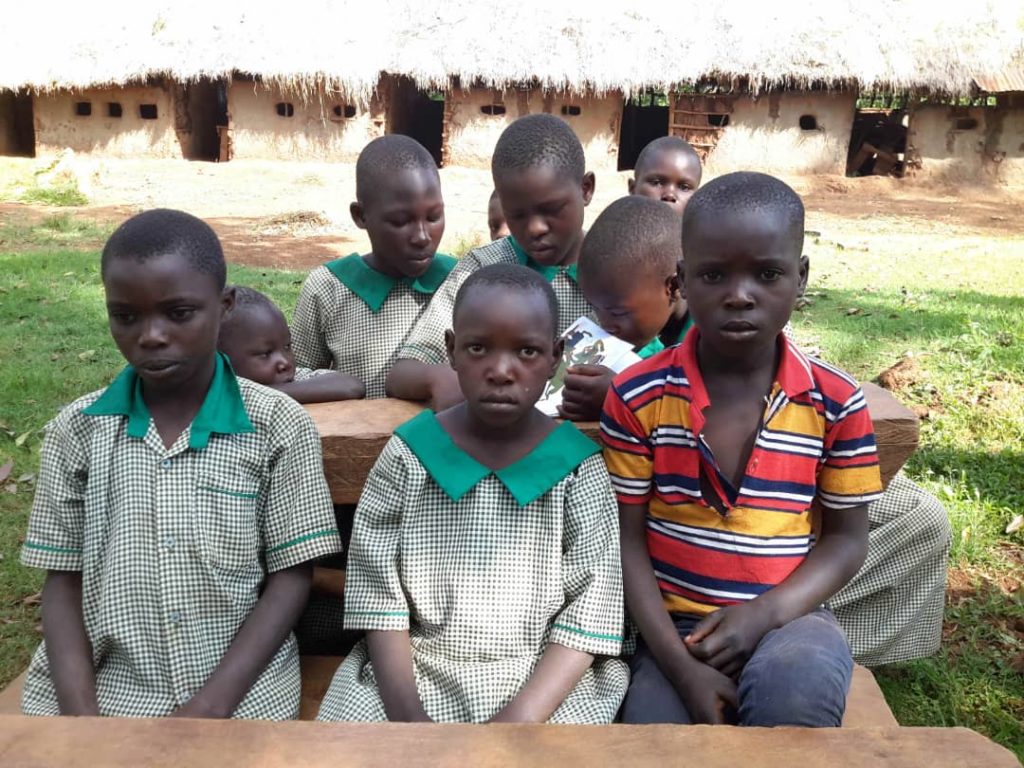
by Pauline McLeod
“I want to read, I want to read.” Three P1 and 2 children were knocking on the door at 9.00am in the morning. Not yet fully dressed these three children had come from the nearby village and were outside Maligita Primary School Office. They wanted access to the books in the library and to read on the tablets.
Maligita Primary School is the lead school from a cluster of six schools called The Sun Flower School Project who are piloting a programme with the World Literacy Foundation and one of their partners HerbAnn Publications in New Zealand. They have among them 20 tablets for school use and loaded with a reading app called Sun Books, and a school tablet linked to the Internet.
As Covid19 hit this community early in March 2020 and the prospect of returning to school became uncertain teachers went out into the community armed with a tablet, reading books and learning aides which had been made in a workshop in February 2020.
Teachers created family bubbles and went out into the villages sometimes walking for an hour to reach students. Parents returned from the gardens at midday so their children could engage in reading and writing lessons with their teachers. Health counselling sessions made it clear that hand sanitizing and mask wearing was an essential part of this learning. Often parents, younger siblings and neighbours joined in the sessions. Technology learning and the use of a tablet has been a mind blowing experience for all concerned. In some families it has met with resistance but students enthusiasm to read and write and be engaged in this learning tool has won them over.

Teachers have had to overcome challenges of keeping ahead of the students computer skills. Weekly zoom sessions with Pauline McLeod (HerbAnn Publications) back in New Zealand and strong leadership from Mr Charles Muwangala, deputy Head of Maligita School, has made this happen. An unstable and unreliable network has stretched everyone’s patience. The expense of buying data and airtime in preparation for our meetings and having enough battery power are enormous challenges. Two schools have no electric power but thankfully World Literacy Foundation have installed solar panels for power and lighting in one school, the other travels 12 kms each time they need to charge their batteries. Their dedication and perseverance are commendable
For the past 3 weeks a group of 8 pupils from P5-7 students from each school have been linked to Pauline who is a New Zealand teacher in a literacy project. Its aim was to introduce students to new vocabulary, new genre, writing for a purpose and having an audience for their writing. These stories will be returned to them in book format. There will also be an exchange of writing between them and New Zealand students who have engaged in doing one of the same writing tasks.
As Pauline is known to these student due to visits to their schools during the past few years they wanted to meet with her and introduce themselves. Thank goodness for Zoom and that night a good internet connection, although one school principal had to climb the tree to get the best reception. The students were so overcome with excitement to think they were linked to Pauline in New Zealand and tell her a little about themselves.
Yeah we did it! What excitement and what a marvellous way to end an unusual year, but roll on 2021 and watch this space.



















merci pour vos efforts
Wow – Pauline you are a star! What an amazing opportunity and you made the very most of it. I am so excited and inspired to hear this after a very challenging year!